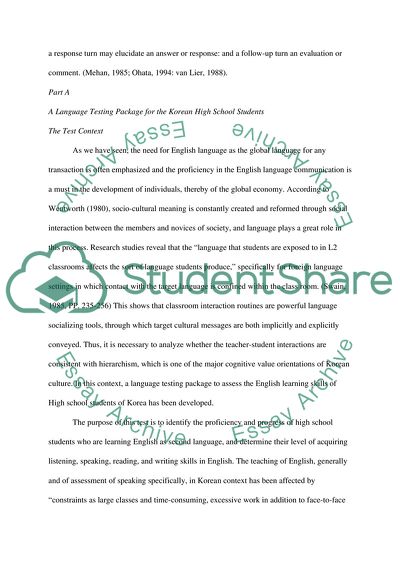Cite this document
(“Language Assessment for Korean High school students learning English Essay”, n.d.)
Retrieved from https://studentshare.org/english/1544141-plese-see-attachments
Retrieved from https://studentshare.org/english/1544141-plese-see-attachments
(Language Assessment for Korean High School Students Learning English Essay)
https://studentshare.org/english/1544141-plese-see-attachments.
https://studentshare.org/english/1544141-plese-see-attachments.
“Language Assessment for Korean High School Students Learning English Essay”, n.d. https://studentshare.org/english/1544141-plese-see-attachments.


